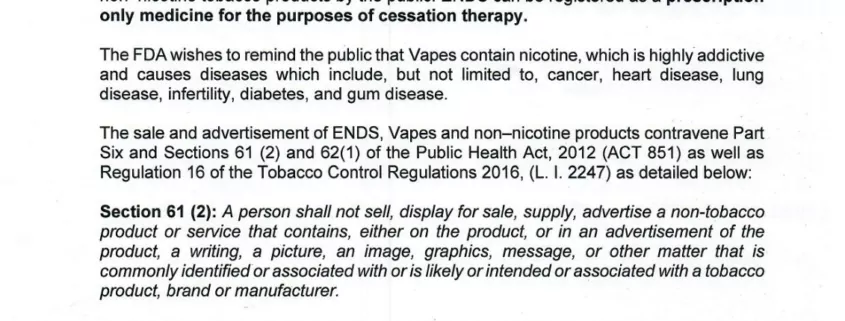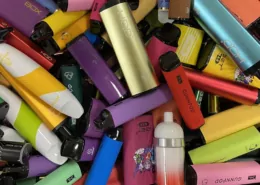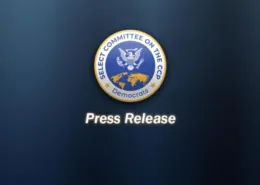Ghana Declares Sales and Advertisement Of Vapes Illegal
In a significant move, Ghana has recently implemented a ban on the sale and advertisement of vaping and e-cigarette products for recreational use. The country’s Food and Drugs Authority (FDA) issued a press release stating that the public’s recreational use of electronic nicotine delivery systems (ENDS), including vapes and other non-nicotine tobacco products, is now illegal. This article will delve into the details of this ban, the exceptions surrounding it, and the implications it may have on the vaping industry in Ghana.
The Ban on Recreational Use
According to the Ghana FDA’s press release, Ghana has completely prohibited the recreational use of vaping and e-cigarette products. This means that individuals are no longer allowed to engage in the sale, advertisement, or recreational use of these electronic nicotine delivery systems. The decision is a significant step towards protecting public health and ensuring the well-being of Ghanaians.
Exceptions for Cessation Therapy
While recreational use is banned, the FDA has made provisions for electronic nicotine delivery systems to be registered as prescription-only medicines specifically for the purpose of cessation therapy. This recognizes the potential benefits of these products as a means to help individuals quit traditional tobacco smoking. It also highlights the importance of regulated access to such products under medical supervision to ensure their safe and effective use for cessation purposes.
Enforcement and Compliance
To enforce the ban effectively, the FDA has taken several measures. The authority has sent notices to manufacturers, importers, wholesalers, and retailers, instructing them to remove all advertisements promoting vaping and e-cigarette products from social media platforms, billboards, and neon signs immediately. Additionally, they are expected to refrain from importing these products to comply with the ban. The FDA emphasizes that failure to adhere to these rules will result in sanctions and other repercussions.
Conclusion
Ghana’s decision to make vape sales and advertisement illegal for recreational use demonstrates the country’s commitment to safeguarding public health. By implementing this ban, the government aims to protect its citizens from the potential risks associated with vaping and e-cigarette products. While exceptions are made for cessation therapy, strict regulations and enforcement measures will be in place to ensure compliance with the ban. This move sets an important precedent in addressing the growing concerns surrounding vaping and its impact on public health.
- Minneapolis Sets $25 Minimum Price for E-Cigarettes - July 11, 2025
- Alabama Schools to Implement New Anti-Vaping Policies - July 11, 2025
- Is Vaping and Driving Illegal in Rhode Island? (2025 Guide) - July 10, 2025







